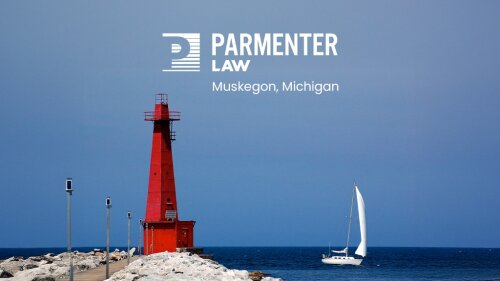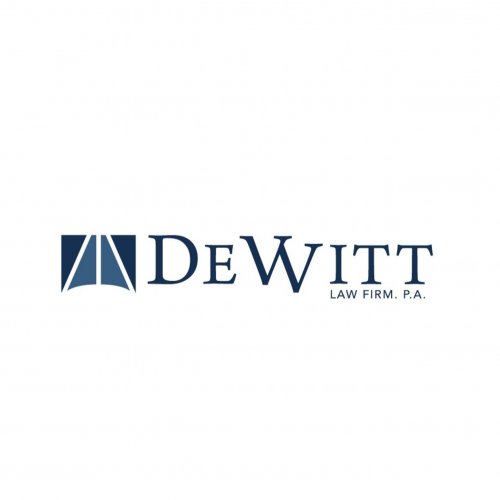Best Mortgage Lawyers in United States
Share your needs with us, get contacted by law firms.
Free. Takes 2 min.
Free Guide to Hiring a Real Estate Lawyer
Or refine your search by selecting a city:
List of the best lawyers in United States
About Mortgage Law in United States
Mortgage law in the United States encompasses the regulation and protection of parties involved in real estate financing. Mortgages are secured loans where the property itself acts as collateral. This area of law ensures proper documentation, fair practices, and the smoothly conducted transfer of property interests. Mortgage law also deals with foreclosure processes, rights and obligations of borrowers and lenders, and the protection of homeowners from predatory lending practices.
Why You May Need a Lawyer
There are numerous scenarios where legal advice in mortgage matters can be crucial. Below are common situations where a lawyer's expertise may be beneficial:
- Understanding the mortgage contract and terms - Mortgages can be complex documents with terms that may not be straightforward. A lawyer can help clarify obligations and rights.
- Assisting with mortgage modifications - If a borrower is struggling to meet payment terms, a lawyer can negotiate modifications with lenders.
- Handling foreclosure defense - In the face of foreclosure, a lawyer can explore options to delay or prevent the process.
- Resolving disputes between borrowers and lenders - Legal disputes over payment terms, interest rates, or changes in loan terms may require legal intervention.
- Negotiating short sales - If selling a property for less than the outstanding mortgage balance, legal advice can ensure a fair agreement.
Local Laws Overview
Mortgage laws vary significantly from state to state, but some key aspects relevant nationwide include:
- Truth in Lending Act (TILA): Requires lenders to provide clear terms about costs and charges of the mortgage.
- Real Estate Settlement Procedures Act (RESPA): Aims to protect homeowners by enforcing transparency about the costs involved in closing a mortgage.
- State-specific property laws: Different states have varying rules on foreclosure procedures, lien priorities, and lender rights.
- Anti-predatory lending laws: These laws are designed to prevent high-cost loans and unjust practices targeting unsuspecting borrowers.
Frequently Asked Questions
What is the difference between a mortgage and a deed of trust?
While both are used to secure a loan with real estate, a mortgage involves two parties: the borrower and the lender. A deed of trust involves a third party, known as a trustee, who holds the title until the loan is paid.
Can I negotiate my mortgage terms?
Yes, borrowers can negotiate terms of their mortgage, including interest rates and payment plans, either directly or with the help of a lawyer.
What happens if I can't pay my mortgage?
If you miss mortgage payments, lenders may begin foreclosure proceedings. Seeking legal advice immediately can help explore options like loan modifications or mediation.
What is foreclosure?
Foreclosure is a legal process by which a lender attempts to recover the balance owed on a defaulted loan by selling the property used as collateral.
How can I prevent foreclosure?
To prevent foreclosure, communicate with your lender as soon as possible; a lawyer may negotiate a forbearance agreement, repayment plan, or loan modification.
What is a mortgage rate lock?
A mortgage rate lock guarantees a borrower a set interest rate for a specified period regardless of market fluctuations.
How long does the mortgage foreclosure process take?
This can vary widely by state law and specific case details, but it can generally take anywhere from several months to over a year from the first missed payment.
Is refinancing my mortgage worth it?
Refinancing can lower monthly payments or interest rates but involves significant upfront costs. Consulting a lawyer can help evaluate the long-term benefits.
What is reverse mortgage?
A reverse mortgage allows homeowners aged 62 or older to convert part of their home equity into cash without selling their home. It's crucial to understand the fees and obligations involved.
Are there any federal programs for mortgage relief?
Yes, programs like FHA Secure, HAMP, and others sponsored by HUD, can assist under specific circumstances.
Additional Resources
There are several resources and organizations that can provide assistance or information:
- Consumer Financial Protection Bureau (CFPB): Offers guidelines and information about mortgages and financial products.
- U.S. Department of Housing and Urban Development (HUD): Provides resources for buying a home and addresses complaints related to mortgage and foreclosure.
- National Foundation for Credit Counseling (NFCC): Offers advice on housing and mortgages, credit counseling and debt management.
Next Steps
If you need legal assistance in mortgages, you can take the following steps:
- Identify your specific legal situation and what you need help with.
- Research and choose lawyers or legal firms experienced in mortgage law.
- Schedule consultations to discuss your case and understand the potential cost implications of hiring legal help.
- Gather all relevant documentation and details related to your mortgage scenario to maximize the efficiency of consultations.
- Consider exploring free legal aid resources if cost is an issue, as many organizations provide pro bono services or consultations.
Lawzana helps you find the best lawyers and law firms in United States through a curated and pre-screened list of qualified legal professionals. Our platform offers rankings and detailed profiles of attorneys and law firms, allowing you to compare based on practice areas, including Mortgage, experience, and client feedback.
Each profile includes a description of the firm's areas of practice, client reviews, team members and partners, year of establishment, spoken languages, office locations, contact information, social media presence, and any published articles or resources. Most firms on our platform speak English and are experienced in both local and international legal matters.
Get a quote from top-rated law firms in United States — quickly, securely, and without unnecessary hassle.
Disclaimer:
The information provided on this page is for general informational purposes only and does not constitute legal advice. While we strive to ensure the accuracy and relevance of the content, legal information may change over time, and interpretations of the law can vary. You should always consult with a qualified legal professional for advice specific to your situation.
We disclaim all liability for actions taken or not taken based on the content of this page. If you believe any information is incorrect or outdated, please contact us, and we will review and update it where appropriate.
Browse mortgage law firms by state in United States
Refine your search by selecting a state.














